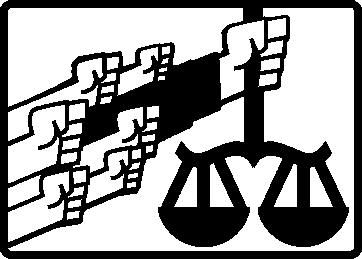USING LEGAL PROCESSES AS TOOLS FOR POLITICAL PERSECUTION: A CRIMINAL OFFENSE
CODAL strongly condemns the use of legal processes as a tool for political repression. The highly irregular barrage of legal cases filed against Rep. Satur Ocampo and Bayan Muna, forms part of acts of harassment against the opposition such as Rep. Allan Cayetano and Mayor Jejomar Binay that suspiciously escalated during the election period.
Hernandez Doctrine
The inordinate interest of Justice Secretary Raul Gonzalez in filing charges against Rep. Ocampo is a case in point. Under Philippine jurisprudence (People vs. Hernandez), a crime of rebellion absorbs all crimes committed in pursuit thereof. Considering that the government has been stressing that rebellion is a continuing crime, it is strangely irregular for government to be filing complaints for acts constituting rebellion in Makati, Leyte and Nueva Ecija against Rep. Ocampo in violation of the Supreme Court decision in Hernandez. Instead of submitting all evidence and consolidating all cases in the Makati RTC where the rebellion case against the Batasan six is currently lodged, Sec. Gonzalez chose to file it in Hilongos Leyte, more than 100 kilometers from Tacloban, a clear case of harassment and political persecution that will result in Rep. Ocampo’s difficulty in campaigning and defending himself.
The information should never have been filed in the first place considering that the complaint suffers from a fatal defect—the allege crime was committed while Rep. Ocampo was in prison.
The harassment conducted by government not only further weakens the legal institutions, but also endangers the state prosecutors and judges who are now vulnerable to criminal charges and administrative cases before the Ombudsman which will surely be filed by the victims of these harassment cases.
Judges are liable for giving an unjust interlocutory order while the prosecutors and false witnesses are liable for filing unwarranted cases or ‘incriminatory machinations’ and ‘perjury’ under the Revised Penal Code. These are also criminal offenses under Sec, 3 of RA 1319 for ;manifest partiality’. Furthermore, these are also violations of Sec. 261 of the Omnibus Election Code if proven to be a part of partisan political activity.
Selective ‘justice’
This pattern of selective justice can be gleaned from the government’s reluctance to impose sanctions on, or even just investigate, its allies while inordinately pursuing the opposition with all the legal tools in its arsenal.
Sec. Raul Gonzalez refused to at least investigate Usec. Jocjoc Bolante despite massive evidence pointing to his involvement in the ‘fertilizer scam’. AFP Chief of Staff Gen. Esperon ‘investigated’ Gen. Jovito Palparan for his involvement in the political killings merely by ‘phone’. The PNP was not enthusiastic in implementing the warrant of arrest issued by the Senate against PCGG officials. CODAL finds hypocritical and dangerous the government’s alacrity to ‘implement the rule of law’ against the opposition while continuously violating legal rules and jurisprudence. In fact, the acts against the political opposition is a criminal offense under the Revised Penal Code and the Omnibus Election Code which prohibits government officials from engaging in partisan political activity and using public resources in electioneering.
CODAL asks the government to refrain from using legal tools and processes as a tool for political persecution. CODAL asks the legal profession to condemn the prostitution of legal institutions for political harassment. CODAL asks the Supreme Court to resoundingly assert the independence of the judiciary in the midst of attacks against the integrity of the judicial processes.
Urgent Statement of Concern
Date : March 10, 2007


1 Comments:
You write very well.
Post a Comment
<< Home